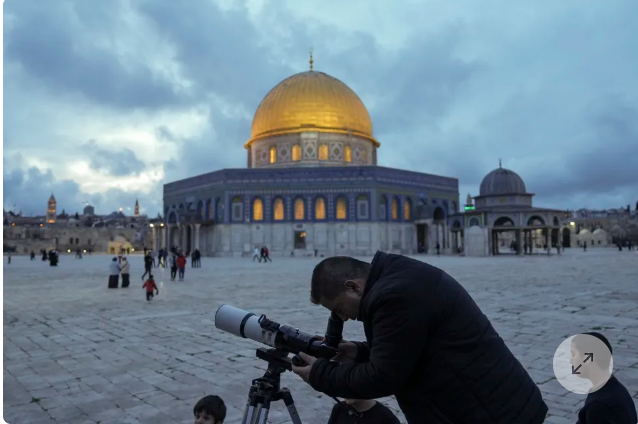The Global Muslim Community as Ramadan Approaches

As the crescent moon heralds the arrival of Ramadan, Muslims around the world prepare to embark on a month-long journey of fasting, prayer, reflection, and community. Ramadan, the ninth month of the Islamic lunar calendar, holds profound significance for the global Muslim community, transcending geographical boundaries and cultural differences. It serves as a time for spiritual renewal, self-discipline, and acts of charity, fostering a sense of unity and empathy among believers worldwide.
Anticipation and Preparation
In the days leading up to Ramadan, anticipation fills the air in Muslim-majority countries and communities scattered across the globe. Families gather to shop for traditional foods and delicacies, ensuring their pantries are stocked with dates, lentils, rice, and other staples essential for breaking the fast. Mosques undergo meticulous cleaning and decoration as they prepare to welcome worshippers for nightly prayers, known as Taraweeh, conducted throughout the month.
Spiritual Reflection and Renewal
Ramadan is not merely a period of abstaining from food and drink from dawn until dusk; it is a time for introspection and spiritual growth. Muslims strive to deepen their connection with Allah through increased acts of worship, including recitation of the Quran and supplication. The fast fosters mindfulness and self-discipline, prompting believers to reflect on their actions and strive for self-improvement.
Community and Solidarity
One of the most striking aspects of Ramadan is its ability to foster a profound sense of community and solidarity among Muslims worldwide. Breaking the fast, known as Iftar, is often a communal affair, with families, friends, and neighbors gathering to share meals and exchange blessings. Mosques host Iftar dinners, open to all, regardless of background or belief, embodying the spirit of generosity and hospitality ingrained in Islamic teachings.
Challenges Amidst Blessings
While Ramadan is a time of spiritual rejuvenation and joy, it also presents challenges for many Muslims, particularly those living in non-Muslim-majority countries. Balancing the demands of fasting with work, school, and other responsibilities can be daunting, requiring patience, perseverance, and understanding from both individuals and institutions. Additionally, for those living in conflict zones or facing economic hardship, the month may exacerbate existing struggles, underscoring the importance of compassion and support within the global Muslim community.
A Call to Compassion and Service
Ramadan serves as a poignant reminder of the importance of compassion, empathy, and service to others. Muslims are encouraged to engage in acts of charity and goodwill, embodying the principles of Zakat (obligatory almsgiving) and Sadaqah (voluntary charity). From feeding the hungry to caring for the vulnerable, these acts of kindness exemplify the true essence of Ramadan and its transformative power to uplift individuals and communities alike.
Looking Ahead with Hope
As the global Muslim community prepares to welcome Ramadan once again, there is a sense of hope and optimism for the blessings and opportunities it brings. Amidst the challenges and uncertainties of the modern world, Ramadan serves as a beacon of light, guiding believers towards spiritual fulfillment, communal harmony, and a renewed commitment to faith and righteousness. As the moon rises and the fasting begins, Muslims worldwide unite in prayer, seeking peace, blessings, and divine mercy for all humanity.